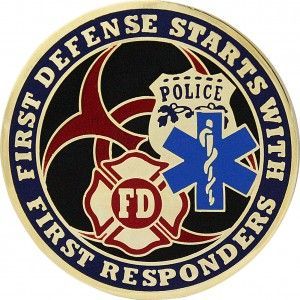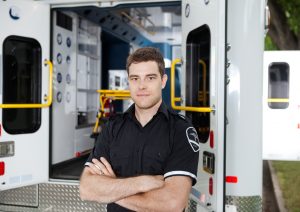First Responders And Self-Care

Most first responders enter the medical field with the hope of helping others and making a difference, only to feel burnout, depressed, anxious, with PTSD or suicidal ideation due to self-neglect and the lack of support.
Public safety personnel are often exposed to horrific scenes in the line of duty! Unfortunately, there is little-to-no training offered to adequately prepare them to process trauma.
The culture glorifies self neglect, tough it out attitude and that having a mental wellness issue is a weakness in character.
Human beings are not made to see things that first responders see at work. Stop trying to tell people that this is just part of the job and that you need to be a little bit tougher. It’s a fallacy. It’s ok to be bothered by the things you saw and process it in a healthy way.
Being a first responder, it takes considerable mental strength and resilience because you are skilled at helping people in extreme distress – therefore first responders should be taken care of more as well. Due to this extraordinary work conditions and exposure to traumatic scenes, First responders are twice as likely to suffer from mental health problems as the general public. But there is a fear of disclosing mental health problems due to stigma, the shame they will receive from supervisors and colleagues and the threat to their careers. Two thirds of responders still go to work despite serious concerns about their mental well-being, which is not healthy or safe for the individual, the public and the organization in general.
Therefore, promoting self-care practices to first responders are imperative for their mental well-being. They need to prioritize themselves first so they can help others. If they are constantly burnout at work and have “given themselves” to help others a lot, they need to spend more time “filling their cup” or do things that bring them happiness.
Scheduling self-care or activities that bring you joy every week or everyday can help a first responder avoid unhealthy coping mechanisms and high risk behaviors that can hurt them and others.
For example:
- Working out – running, lifting weights, MMA, boxing, self defense classes, swimming, biking, yoga, sports
- Spending time outdoors – hiking, mountain/rock climbing, riding motorcycles, riding bicycles, camping, fishing, boating, going to the beach
- Socializing – spending quality time with family and friends, social sports (basketball, soccer, softball leagues)
- Relaxing – reading, napping, watching tv
- Hobbies – painting, knitting, carpentry, DIY home projects, collections
- Pausing – meditating, breathing exercises, massages, sauna or steam rooms, using Calm or Headspace apps
- Traveling or adventures – local or international
- Other healthy activities that brings you joy
The point is to spend time doing activities that you enjoy. Work is not your life. It is part of your life but it should not define you or your life.
To have a fulfilling life:
- we need to have something to do
- something to look forward to
- someone to love (starts with ourselves)

